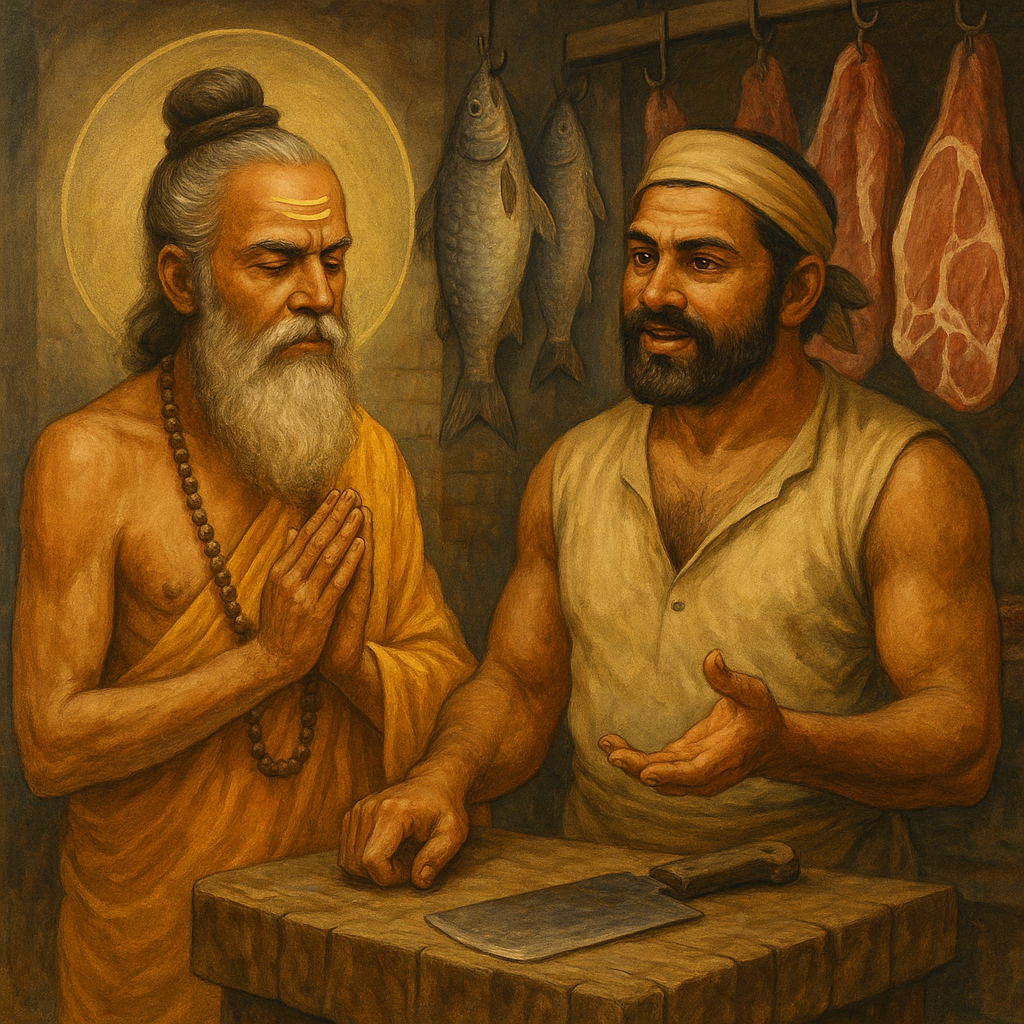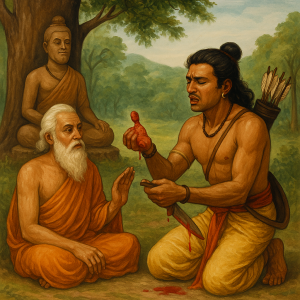A Proud Brāhmaṇa
A wandering brāhmaṇa sage, puffed with spiritual pride, entered a butcher’s shop in a village. Expecting to see ignorance and filth, he instead found deep humility, precise knowledge of dharma, and genuine realization in the man who sold meat.
The Butcher’s Realization
The butcher explained he did not desire his profession but performed it with devotion, honoring his parents, customers, and Lord. He emphasized that what mattered was one’s consciousness, not one’s external role.
The sage was humbled, realizing that renunciation without humility is barren.
Lessons to Be Learned
1. Devotion Purifies All Activities
The Bhāgavatam (11.20.9) confirms that bhakti can purify even a fallen condition. The butcher, though outwardly impure, lived in full awareness of the Lord—thus elevating even his trade.
2. False Pride in Renunciation Leads to Bondage
The sage’s pride is a common danger. Bhakti without humility is like fire without heat. The real sādhaka sees all beings as servants of the Lord.
3. Serving Parents Is a Form of Bhakti
Serving elders, done with honor and sincerity, is a vital part of devotional service. The butcher taught that even household duties can be gateways to liberation when performed with God in mind.



